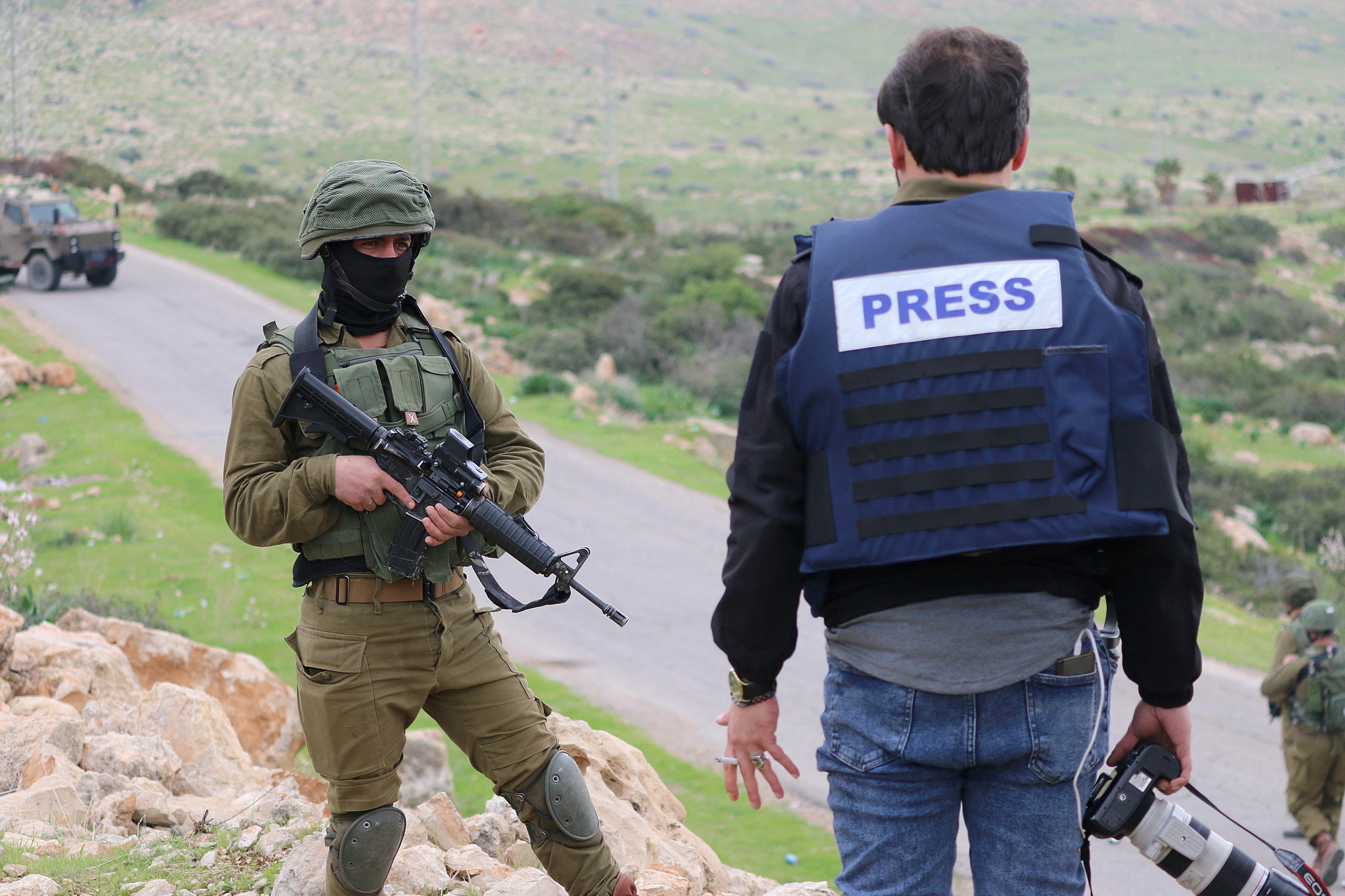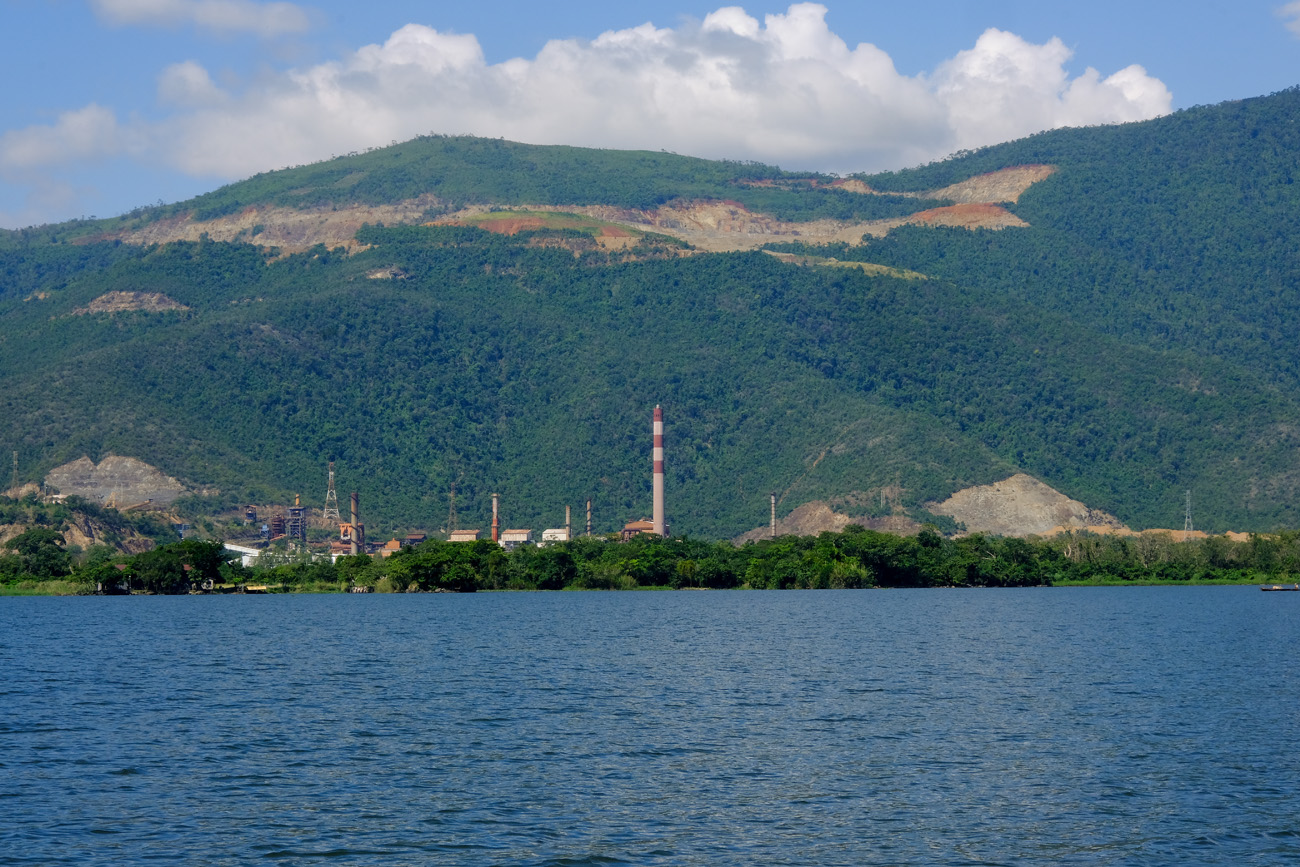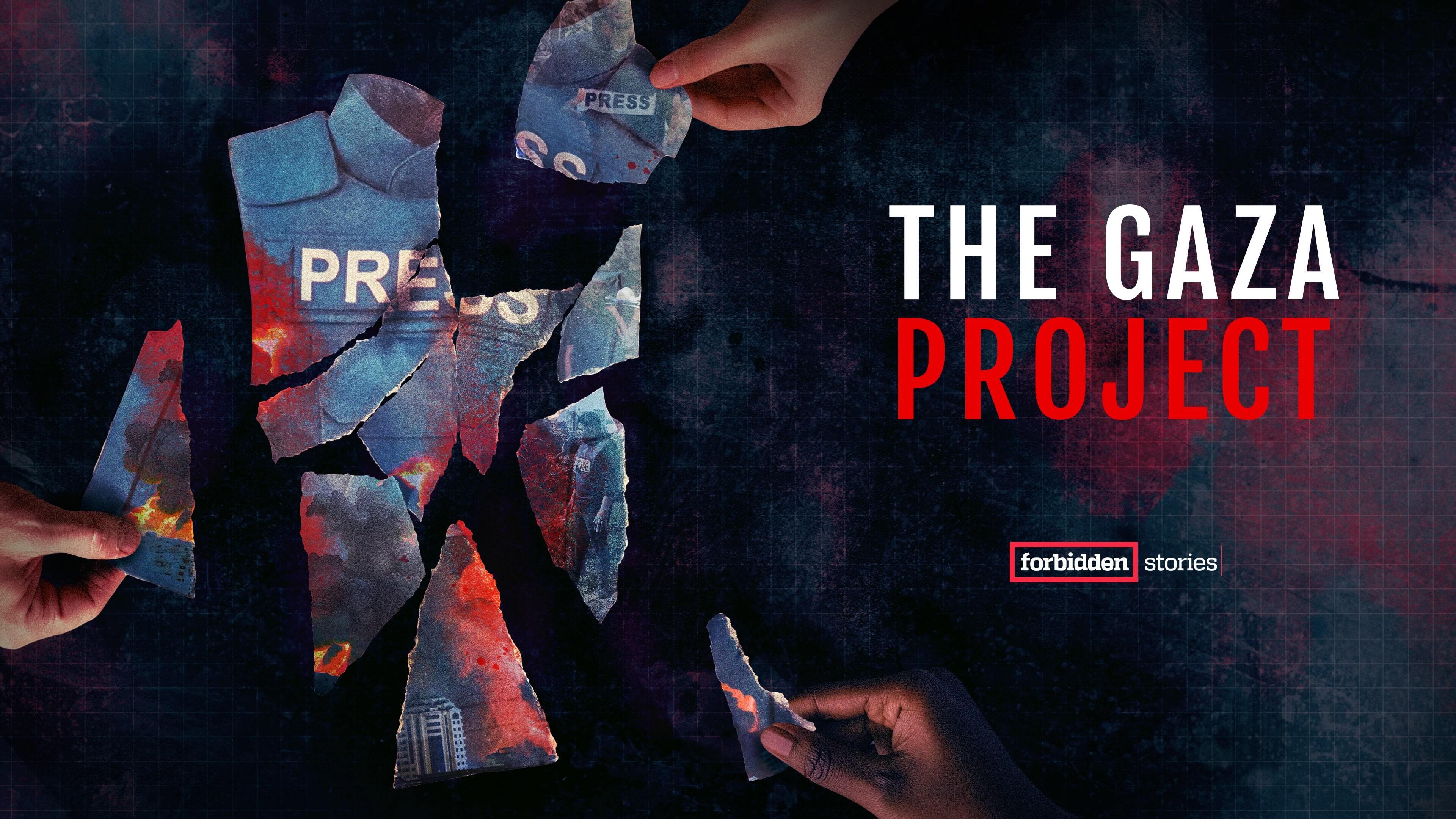Trial of the first journalist convicted by the Ertzaintza under the Moorish Law
- Almost two years after the facts and one year after the confirmation of the sentence by administrative means, the trial of journalist Hala Bedi Mikel Sáenz de Buruaga will be held on Tuesday, 2 April. The Ertzaintza and the Basque Government applied the Citizen Security Act in May 2017 for the recording of the police operation in the Errekaleor neighborhood of Vitoria-Gasteiz. It is the first journalist sanctioned by the Basque Government under the Moorish Law against the Executive. On the same day, the rally called at 11.30 a.m. will bring solidarity to the court's door.

In his day, Hala Bedi announced that he "will reach the end" to face the "attack on freedom of information". As they have repeatedly denounced, the sanction is based on "a false report by the Ertzaintza", so in April 2018 the decision to go to a contentious administrative trial against the ruling, once all the administrative channels have been exhausted, was made public.
They have criticised the Basque Government's having applied "an unfair law that violates civil and political rights" and "encourages police assembly". In this regard, they have recalled that the Basque Parliament committed itself not to apply the aforementioned law in the Basque Country.
After exhaustion of the administrative process defined as "kafkarra" and at the gates of the judicial route, they consider that "the right to defence has been violated". The National Police has denied them all the evidence submitted, including audio-visual records and witness statements that call into question the police version of the case.
In addition, they have considered that "without a doubt" the petition for conviction is a "police montage" for the defendant. This accusation was built "subsequently, as a punishment for the journalistic work carried out in Errekaleor" and as "revenge of the public indictment" after the aggression suffered on the same day of the events.
Silenced, beaten and punished in the reconstruction of the events
But what actually happened in Errekaleor that morning of May 18, 2017? Why was Hala Bedi's journalist punished while doing his job? Why did they attack him while he was working? Why was he not notified of the conviction on the same day? How is it possible that police reports do not mention their status as a journalist, even after being identified with the press card?
On 18 May, two journalists from Hala Bedi followed the events in Errekaleor from the first hour of the morning, knowing that a police operation had been initiated in the occupied Errekaleor district, due to a cut in energy. All the content published that day remains easy to find on the Internet: minute by minute monitoring on social networks, live telephone connections or the same video that had thousands of visits during those days.
At 12:30 a.m., Hala journalist Bedi Mikel Saenz de Buruaga was assaulted by an ertzaina, while the journalist was recording with a pocket the police action he was doing. It was the same ertzaina that knocked the phone to the ground intentionally, causing it to rupture.
Subsequently, the two journalists of Hala Bedi requested the identification of the police, who at all times had press cards in their hands. Explanations were also requested from one of the Ertzaines leading the operation for the aggression they suffered on the spot. Despite this, journalists were the only ones who finally identified themselves.
In the case of Mikel Saenz de Buruaga, the Ertzaintza withdrew the press release and, in addition, the ID, without giving any explanation. Finally, the ertzaina returned the two documents, together with a manuscript paper containing the identification number of the alleged perpetrator of the aggression. At that time, the head of the Ertzaintza also made a comment: "We know you. We know you're from the radical environment."
While this happened, the journalist had no news that his behavior was inappropriate and no one said that he intended to impose a fine. Even that same afternoon, Hala Bedi issued a statement denouncing everything that happened.
In this video you can see how the journalist was all morning in Errekaleor doing a journalism job, after the police fence: recording with the phone, broadcasting images on social networks and making telephone connections with the radio, as a correspondent.
Minutes after the arrival of the Ertzaintza, a new police fence was established in the access to Errekaleor, which prevented journalists from other media from reporting on what happened on the spot. Many of them denounced him at the entrance to the neighborhood and even some used images of Hala Bedi to inform what was happening.
Kafka's custom-made process The maze of the Muddy Law and administrative procedures
However, last July, two months after the events in Errekaleor, the Basque Government, without notice, sent a communication to the journalist: The defendant was sentenced to a fine of EUR 602 for a very serious breach of the Citizen Security Act, known as the Moorish Law.
The sanctioning dossier, based on a police report, claimed that Hala Bedi's journalist violated Article 36.6 of the law, "by disobedience or resistance to authority", supposedly overcoming the Errekaleor barrier of May 18.
Both Hala Bedi and the journalist himself have denied the indictment at all times and have described the fine as "revenge and aggression against freedom of information".
At the time, Hala Bedi's assembly decided to respond and publicly denounce the aggression as a collective and to express its "intention to disobey": they announced that they would not pay the fine and that they would resort to it until the last consequences. That same Assembly put that answer on the table as a response to an "injustice", because "the law itself is not fair and the facts that are imputed are false".
Solidarity and media impact were very great, as this was the second time the Moorish Law was applied to a Basque journalist (the first was the journalist of Argia Axier López, who finally withdrew the fine). Many groups and associations supported Hala Bedi and the convicted person, and considered the fine a "violation of press freedom":
- On 28 July, the Basque Association of Journalists and the Basque College of Journalists published a joint statement denouncing "the direct attack on the right to information".
- The Freedom of Information Association (PDLI) also filed a complaint with Ararteko for "covering up sanctions against freedom of information among generic infringements" and for the "disproportionate growth" of these fines.
- In August, the Spanish Ombudsman initiated proceedings under the PDLI complaint. At the same time, Hala Bedi had contacts with the Ararteko in the CAV, which confirmed the opening of a file by the Ombudsman.
- Recently, the PDLI has reported the case in its report ‘2017, the year of opinion crimes’.
- In August, Hala Bedi's journalist filed the first administrative appeal against law reform. Subsequently, after eight months of process and six official notifications and five appeals, on 28 March, the Department of Security of the Basque Government forwarded the notification of the sanctioning resolution: It confirms the sanction against Mikel Sáenz de Buruaga for a crime of attempted murder.
- Hala Bedi has denounced that throughout the process the journalist has suffered "a state of helplessness" and that the reason for the sanction is "a lie from the top down". Thus, he has criticized, among others, the elements that have been "continuous throughout the labyrinth of notifications and resources". They are summarised as follows:
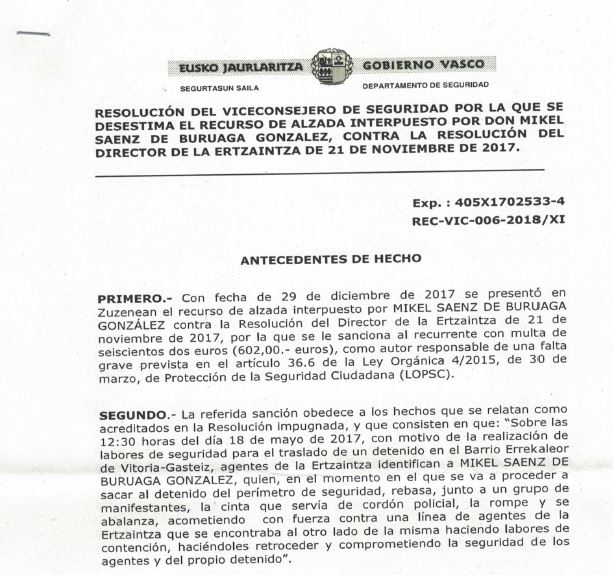
Resolution of the Deputy Security Advisor dismissing the last appeal filed by Hala Bedi / March 2018 The dossier does not substantiate the facts underlying the fine. The Department of Security of the Basque Government has denied that Sáenz de Buruaga was identified with his statement and, as Hala Bedi has denounced, "it is especially serious that he lies on this issue" because "there were people who saw it this way".
.jpg)
.jpg)
- However, article 52 of the Law on Citizen Security, which states: "Complaints, statements or minutes made by the officials of the authority in the exercise of their duties who have witnessed the events, once ratified by the agents themselves in the event that the defendants renounce them, shall constitute a sufficient basis for the adoption of the appropriate resolution." "Your word against you," but pushed to the end, because it doesn't give you the slightest chance to prove otherwise. Moreover, despite repeated requests, the defence has not yet received the act of ratification by the police who filed the complaint, which is essential for the implementation of Article 52.

The infringement is considered “proven”, according to Article 52 of the “Mordaza Law”. The written statements of the two witnesses presented have been denied and their impartiality has been questioned, claiming that they are colleagues of Hala Bedi. One of them was a direct witness to the facts, while the other was in writing, in constant contact with the journalist who has been fined. There are also audios that show that the journalist was doing his job, as he made several live connections to Hala Bedi radio that day.

The statement of a first-hand witness as a trainee is denied. 
The credibility of another witness is denied only for belonging to Hala Bedi. The value of the video presented as evidence has also been denied, considering that it does not "fully" collect the facts that occurred. In the opinion of Hala Bedi, "to say that is not to see the video content, without forgetting that the only video that would serve as a definitive test would be engraving with the broken cell phone".


However, from Bedi they have denounced that "the formula is clear: It's guilty, if it doesn't prove otherwise." They have therefore roundly condemned: "We want to denounce the fine, but also this particular administrative process and the Civil Law in general," he added. They consider that the process is a process "built on a lie" and that "will reach the end" so that "injustice is not committed".
Don't speak, don't flutter. For freedom of expression
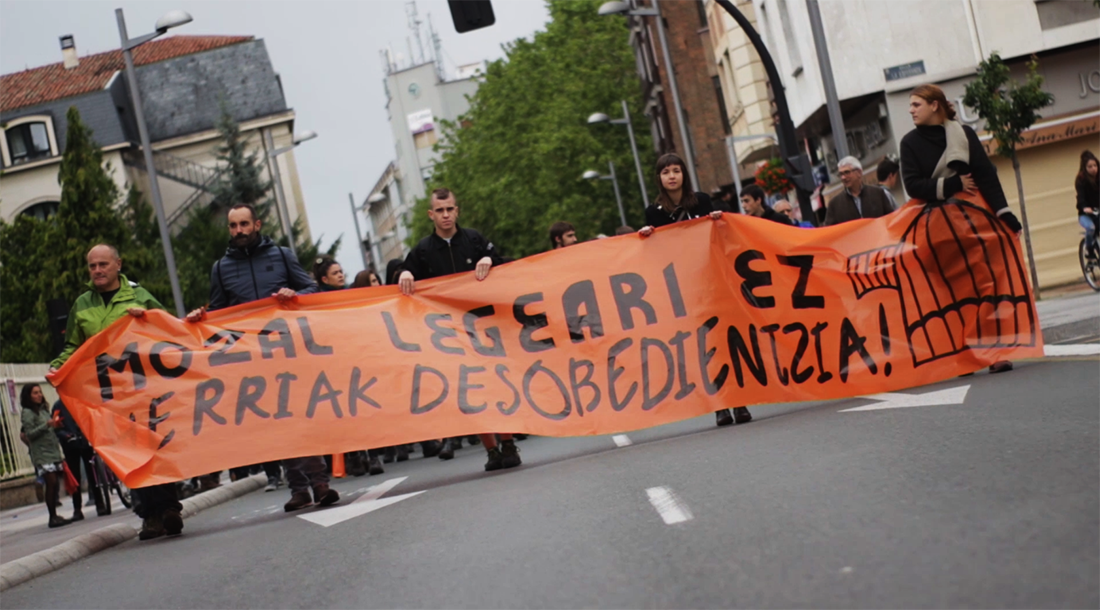
This is not the only case. It would be the first Basque journalist condemned by the Moorish Law, but the Basque Government has applied the law more than 8,000 times since July 2016, despite its commitment not to apply it. Furthermore, it is used to infringe rights: civil and political rights and freedom of expression, of the press and of information are at stake.
It is no coincidence that whoever is being punished by this law is a very specific journalism, that it has close cooperation with popular movements and that it closely observes the abuse of power and police violence, and from the street. The identification of journalists, photographers and collaborators of Hala Bedi and the threats of the Ertzaintza over the past few years are daily.
Although the fine was later annulled, it is no coincidence that Axier López, a journalist from Argia, was the first journalist to whom the Mordaza Law applied. It is no coincidence that another journalist from Argia, Lander Arbelaitz, has recently been convicted of publishing a video and information on another Ertzaintza intervention. In the latter case, the Mordaza Law was not used, but it follows the same logic: to protect power in the face of critical, popular and uncomfortable journalism. We wish to take this opportunity to convey to Lander and Argia our warmest solidarity.
However, this is not an attack on a journalist, but an attack on Hala Bedi, on Errekaleor, on the grass-roots movement, on political and social dissent and, above all, on freedom of information. Hala Bedi decided to disobey the law of exception as a collective and, depending on it, he will continue to act in the future, because the accusation is false and because the law is unfair, because it puts at risk the fundamental freedoms of a democracy, in short. A system that denies citizens access to all information and makes journalism difficult cannot be considered a democratic system.

Hala Bedi will not accept the premise underlying this absurd: accepting the testimony of a police officer as proof implies accepting that the police do their work professionally and the journalist does not. Hala Bedi affirms that the situation is unacceptable, as it jeopardises freedom of information and calls into question information work. If this detail is not taken into account, the police can be given the possibility of committing any abuse against journalists or media that they do not like.
They express their intention to exhaust all legal avenues and go to trial, not only to defend their freedom of information, but also to defend the collective right to plurality of information.
First of all, two possibilities are opened up and a whole future is at stake. The loss of judgment would once again confirm that the Moorish Law is a wall that opens the way to the violation of freedom of the press, to ideological persecution and to police impunity. The next step would be to deepen disobedience, certainly the path that Hala Bedi would take.
Winning judgment would be to see all of that, but also a small victory over injustice. Following an unending and Kafkaesque administrative process based on legal defenselessness and economic threat to disadvantaged people, the victory of this case should be a small but effective precedent for the Mordaza Act to be definitively suspended. In fact, the flagship of the repressive drift of recent years has become a symbol of its justification. And the Basque Government is complicit in all this.
.jpg)
In the meantime, they have ensured that they will continue to do their job, as they have done so far, as it will be the most effective action of disobedience against injustice.
Don't speak, don't flutter.
For them, for all.
This news was posted by Hala Bedi and we brought it with the Creative Commons license.
Osasun artak biltzen ari da Pablo Gonzalez Moskun une honetan. Joan den astean, Poloniako Radomgo segurtasun handiko espetxetik atera zen kazetaria bi urte eta bost hilabeteko preso egon ondoan. Poloniak leporatzen zion espioitza frogatu gabe libre atera da.









